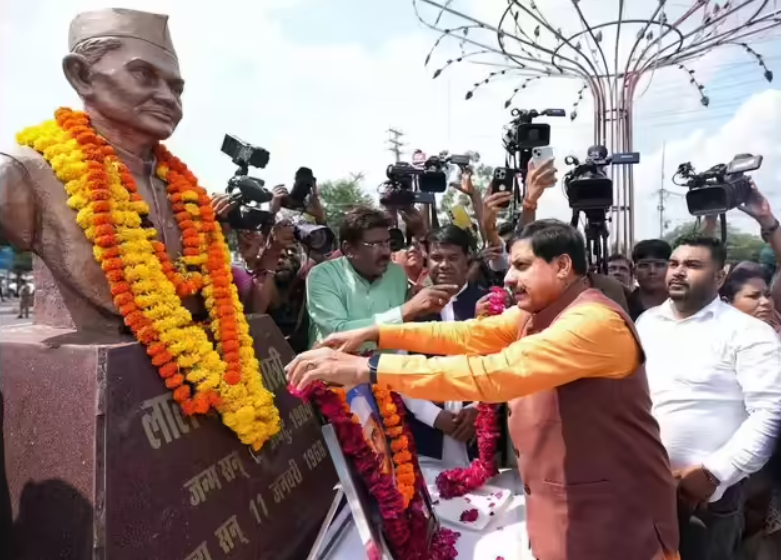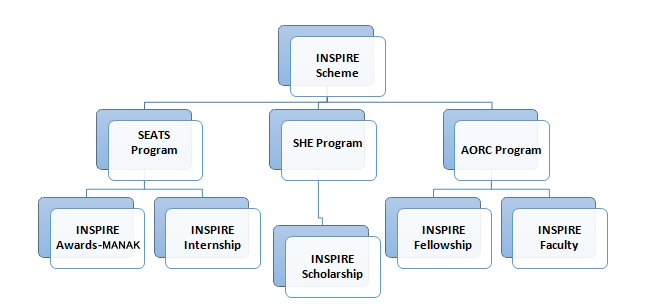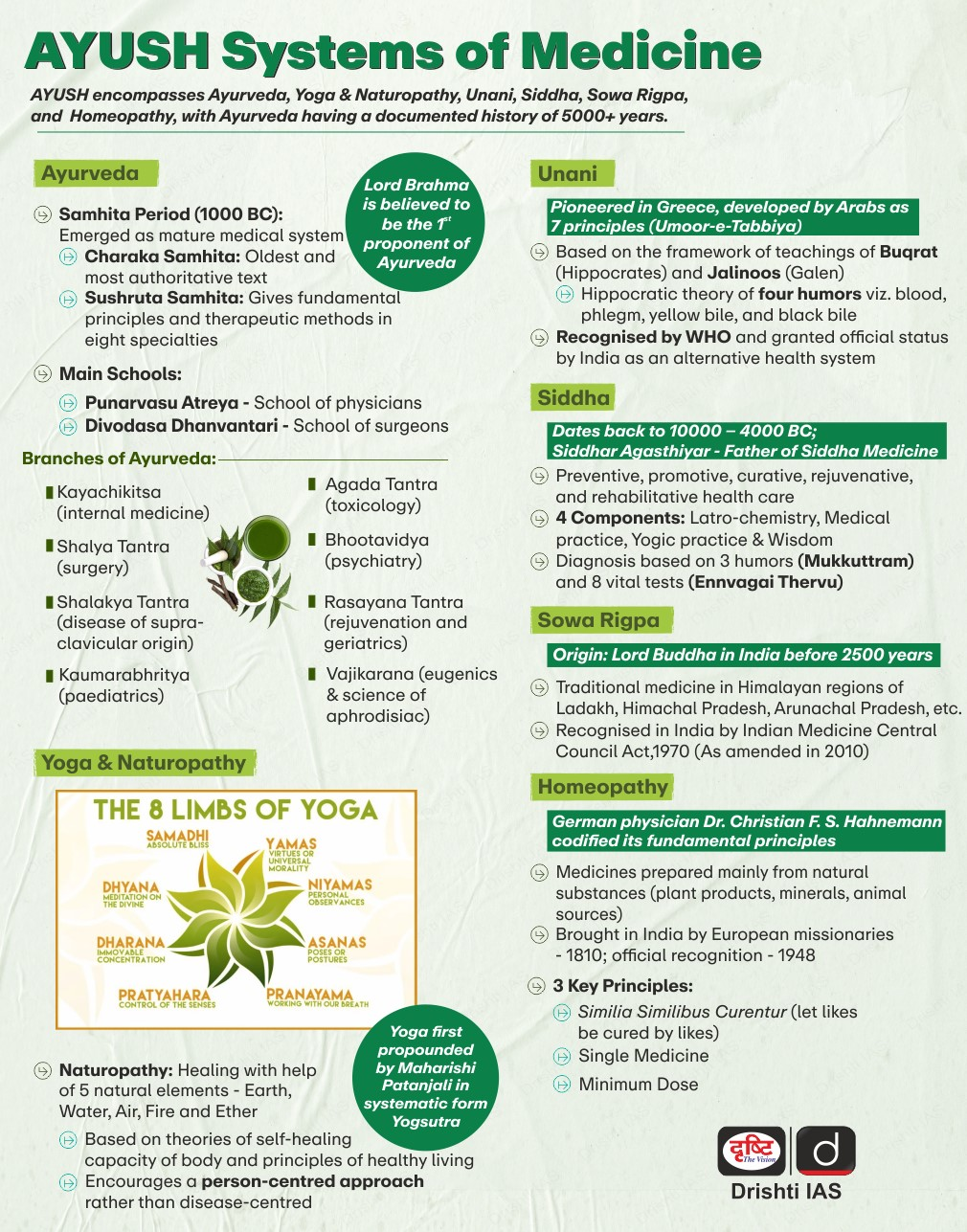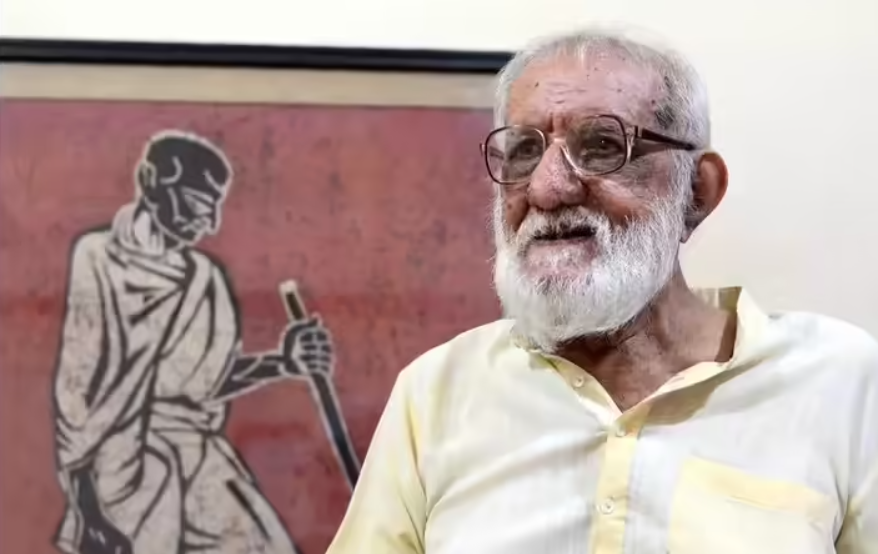National Current Affairs Switch to Hindi
International Day of Non-Violence
Why in News?
In India, 2nd October is celebrated as Gandhi Jayanti, honouring Mahatma Gandhi’s birth anniversary.
- The day is also observed worldwide as the International Day of Non-Violence, following a 2007 UN resolution supported by over 140 countries, giving it universal significance.
Key Facts About Mahatma Gandhi
- Birth: 2nd October 1869 in Porbandar (Gujarat).
- Brief Profile: Lawyer, politician, social activist, and writer who became the leader of the nationalist movement against the British rule of India.
- Books: Hind Swaraj, My Experiments with Truth (Autobiography)
- Death: He was shot dead by Nathuram Godse on 30th January 1948.
- 30th January is observed as Martyrs' Day.
- Role in India’s Freedom Struggle
- Leadership of the Indian National Congress (INC): Mahatma Gandhi emerged as a prominent leader of the INC in the early 20th century, advocating for non-violent resistance and mass mobilisation to challenge British rule.
- The Belgaum session in 1924 was the only Congress session that was presided over by Gandhi Ji.
- Non-Cooperation Movement (NCM) (1920-1922): Gandhi launched the NCM in response to the Jallianwala Bagh massacre and the repressive Rowlatt Act.
- He urged Indians to boycott British institutions, goods, and honours, leading to widespread participation across the country.
- Gandhi Ji was awarded the Kaisar-i-Hind gold medal in 1915 for his service in the Boer War, but returned it in 1920 to protest the Jallianwala Bagh massacre.
- Salt March (1930): Gandhi led the Salt March to the Gujarati coastal town of Dandi, protesting the British salt tax. This marked the beginning of the Civil Disobedience Movement.
- Quit India Movement (QIM) (1942): Gandhi called for the QIM, demanding an end to British rule in India.
- His slogan, "Do or Die," inspired millions to participate in protests, strikes, and acts of civil disobedience, marking a significant escalation in the freedom struggle.
- Philosophy of Non-Violence: Throughout his activism, Gandhi emphasised the principles of Satyagraha (truth force) and Ahimsa (non-violence), advocating for peaceful protests and moral integrity.
- His approach not only influenced the Indian independence movement but also inspired civil rights movements worldwide, such as Nelson Mandela and Martin Luther King Jr.
- Leadership of the Indian National Congress (INC): Mahatma Gandhi emerged as a prominent leader of the INC in the early 20th century, advocating for non-violent resistance and mass mobilisation to challenge British rule.
Madhya Pradesh Switch to Hindi
CM Pays Tribute to Lal Bahadur Shastri
Why in News?
Madhya Pradesh CM Mohan Yadav paid tribute to former Prime Minister Lal Bahadur Shastri on his birth anniversary, recalling his ideals and the slogan “Jai Jawan, Jai Kisan” as a guiding force.
Key Facts About Lal Bahadur Shastri
- Birth: He was born on 2nd October 1904 in Mughalsarai, Uttar Pradesh.
- Brief Profile: He was the second Prime Minister of India, known for his leadership and his slogan "Jai Jawan Jai Kisan," emphasising the importance of both soldiers and farmers in nation-building.
- Death: He died on 11th January 1966, in Tashkent, Uzbekistan.
- He was the first person to be posthumously awarded the Bharat Ratna (1966).
- Role in Nation Building:
- Leadership in the 1965 Indo-Pak War: Lal Bahadur Shastri effectively led India during the 1965 war, boosting national morale.
- Green Revolution: Shastri played a key role in promoting the Green Revolution, which helped India increase agricultural production and move towards self-sufficiency in food grains, addressing the nation’s food security challenges.
- National Integration: Promoted national unity and cultural harmony while simultaneously advancing industrialisation and self-reliance to boost India’s economic growth and reduce dependence on imports.
- Civil Services: Shastri stressed that civil servants must uphold ethics, transparency, and dedication to keep governance corruption-free and people-centric.
Uttar Pradesh Switch to Hindi
UP Tops in Inspire Award Manak Scheme
Why in News?
Uttar Pradesh has achieved the highest number of nominations (2.8 lakh) under the INSPIRE Award MANAK (Million Minds Augmenting National Aspirations and Knowledge) scheme, setting a new national benchmark in student-led innovation.
Key Points
- Record Achievement: UP recorded 2.8 lakh nominations this year, the highest since the scheme began, marking a 70,000 rise from last year’s 2.1 lakh.
- Inclusive Participation: Active participation was witnessed with nominations from all 75 districts, involving students from Secondary, Junior High, Kasturba Gandhi Balika Vidyalayas, Composite, and Sanskrit Schools.
- Top Performing Districts: Pratapgarh (7,085), Prayagraj (6,929), Lucknow (6,721), Hardoi (6,689), Jaunpur (5,930).
- 22 districts of UP feature among the top 50 districts nationwide in nominations.
- National Comparison: Uttar Pradesh is followed by Rajasthan with 1.41 lakh nominations and Karnataka with 1.01 lakh nominations at the national level.
- INSPIRE Award MANAK Scheme:
- About: It is a flagship scheme jointly implemented by the Department of Science and Technology (DST), Government of India, and the National Innovation Foundation (NIF) – India, an autonomous body of the DST.
- Target Group: Students of Classes 6 to 12.
- Objective: To foster innovation, originality, and creative thinking among school students.
- Process: Students submit innovative ideas through online nominations.
INSPIRE Scheme
- The INSPIRE (Innovation in Science Pursuit for Inspired Research) scheme, a flagship programme of the Ministry of Science & Technology and Earth Sciences, aims to attract youth towards science from an early stage and build a strong human resource base for strengthening India’s Science, Technology, and R&D ecosystem.
- The Government of India has been implementing the INSPIRE scheme since 2010, covering students aged 10–32 years through five components, including the INSPIRE Awards-MANAK.
National Current Affairs Switch to Hindi
National Dhanwantari Ayurveda Awards 2025
Why in News?
The Ministry of Ayush announced the National Dhanwantari Ayurveda Awards 2025, recognising outstanding contributions to Ayurveda by Prof. Banwari Lal Gaur, Vaidya Neelakandhan Mooss E.T., and Vaidya Bhavana Prasher.
Key Points
- About the Awards:
- Instituted by the Ministry of Ayush.
- Among the highest honours in traditional Indian medicine.
- Recognises excellence in promotion, preservation, and innovation in Ayurveda.
- The 2025 awardees represent three vital dimensions of Ayurveda: scholarship, traditional practice, and scientific innovation.
- Awardees:
- Prof. Banwari Lal Gaur: Scholar and academician with six decades of contribution in Ayurvedic education and Sanskrit literature.
- Recipient of Rashtrapati Samman and several other national accolades.
- Vaidya Neelakandhan Mooss E.T.: Head of Vaidyaratnam Group, Kerala, representing the eighth generation of a 200-year Ayurvedic lineage.
- Known for preserving and modernising Ayurveda as a living, community-oriented practice.
- Vaidya Bhavana Prasher: Pioneer in Ayurgenomics, bridging Ayurvedic Prakriti concepts with modern genomic science.
- Contribution integrated into Rashtriya Prakriti Parikshan Karyakram.
- Prof. Banwari Lal Gaur: Scholar and academician with six decades of contribution in Ayurvedic education and Sanskrit literature.
- Significance:
- Recognises continuity and evolution of Ayurveda across classical scholarship, traditional practice, and modern science.
- Reinforces Ayurveda’s role in integrated and personalised healthcare.
- Strengthens India’s global leadership in traditional medicine and innovation.
Bihar Switch to Hindi
Largest Battery-based Solar Plant in Bihar
Why in News?
India’s largest battery-based solar power plant has become operational at Kajra in Lakhisarai district, Bihar, marking a major milestone in the state’s renewable energy journey.
Key Points
- The project has been developed in two phases, with a total capacity of 301 MW of solar power and 495 MWh of battery storage.
- It allows daytime solar energy to be stored in batteries and supplied during peak night hours, ensuring continuous and reliable power availability.
- The plant showcases Bihar’s growing role in renewable energy innovation and supports the state’s efforts toward sustainable and clean energy infrastructure.
- Under the leadership of Chief Minister Nitish Kumar, Bihar continues to strengthen its foundations of good governance through focused development in electricity, roads, and water infrastructure.
- This project reinforces India’s commitment to green energy transition and energy security through advanced storage-based solar solutions.
Bihar Switch to Hindi
Shailesh Kumar Wins India’s First Gold Medal
Why in News?
India’s Shailesh Kumar has created history by winning the country’s first-ever gold medal at the World Para Athletics Championships 2025, marking a proud moment for Indian sports.
Key Points
- Shailesh Kumar, hailing from Islam Nagar village in Jamui district, Bihar, clinched gold in the men’s high jump T63 event.
- He cleared a personal best of 1.91 metres, breaking both the Championship record and the Asian record.
- Fellow Indian athlete Varun Bhati secured the bronze medal in the same event, adding to India’s medal tally.
- This is Shailesh Kumar’s maiden World Championship gold, showcasing India’s growing strength and excellence in para athletics on the global stage.
Bihar Switch to Hindi
Rabi Workshop and Agricultural Advisory Dialogue
Why in News?
Union Minister for Agriculture, Farmers’ Welfare, and Rural Development, Shri Shivraj Singh Chouhan, participated in the Rabi Workshop and Agricultural Advisory Dialogue held in Patna, emphasising the importance of strengthening agricultural productivity and farmer welfare.
Key Points
- The Minister highlighted that “Agriculture is the backbone of India’s economy, and farmers are its soul.”
- He underlined Bihar’s immense potential in the cultivation of pulses and maize, encouraging farmers and advisors to leverage this strength.
- Referring to the Pulses Mission, he stated that India is moving toward self-reliance in pulse production, with agricultural advisors playing a key role in achieving this goal.
- He also acknowledged the recent hike in Minimum Support Prices (MSP) approved by the Union Cabinet, which aims to ensure better returns for farmers.
- The event focused on preparing strategies for the Rabi season, which involves crops sown in October and harvested during April–May.
- Major Rabi crops include wheat, gram, peas, and barley, which require a warm climate for germination and a cold climate for growth.
Maharashtra Switch to Hindi
Renowned Gandhian G.G. Parikh Passes Away
Why in News?
Dr. Gunvantrai Ganpatlal (G.G.) Parikh, a Gandhian, freedom fighter, and socialist leader, passed away on 2nd October 2025 at the age of 101.
- He spent his life strengthening the labour movement, consumer co-operatives, and spreading democratic socialist values.
Key Points
- Early Life and Role in Freedom Struggle:
- Born in Rajkot on 30th December 1924.
- Participated in the Quit India Movement (1942) and was imprisoned for 10 months.
- Mentored by Acharya Narendra Dev, which shaped his socialist ideology.
- Married Mangala Parikh, a Gandhian and Shantiniketan alumna, in 1948.
- Contributions to Public Life:
- Medical Service: A practicing doctor in Mumbai and rural Maharashtra; ran clinics for decades, treating the underprivileged at nominal charges.
- Labour Movement: Active in Hind Mazdoor Sabha, leading workers’ struggles for rights and dignity.
- Political Role: Associated with Samajwadi Paksha, Seva Dal, and later the Janata Party after the Emergency.
- Emergency Era: Arrested during the Emergency; linked with the Baroda Dynamite case.
- Yusuf Meherally Centre: Founded in 1962 at Taara village, Panvel (Raigad district, Maharashtra).
- Promoted Gramodyog (village industries) aligned with Gandhian ideals.
- Social and Political Movements:
- Builder of consumer co-operatives like Apna Bazaar, Gaondevi Society, and Nan Chowk Society.
- Promoted women’s empowerment through Samajwadi Mahila Sabha.
- Advocated for communal harmony, led a Bharat Yatra (2005) to involve youth in grassroots development.
- Supported zero-carbon initiatives and experimented with sustainable agriculture.
- Legacy & Relevance:
- Embodied Gandhian values of service, self-reliance, and grassroots empowerment.
- His life reflects the interlinkage of freedom struggle, socialism, and community development—a model of democratic socialism in practice.





 PCS Parikshan
PCS Parikshan





